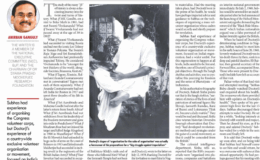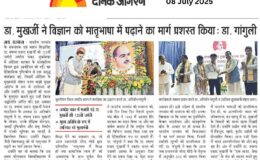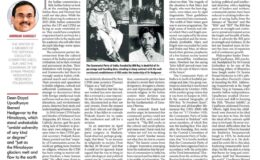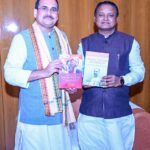In Birbhum, TMC’s Muscle Power Has Become a Weakness as Voters Look for Change
- By : Anirban Ganguly
- Category : In News
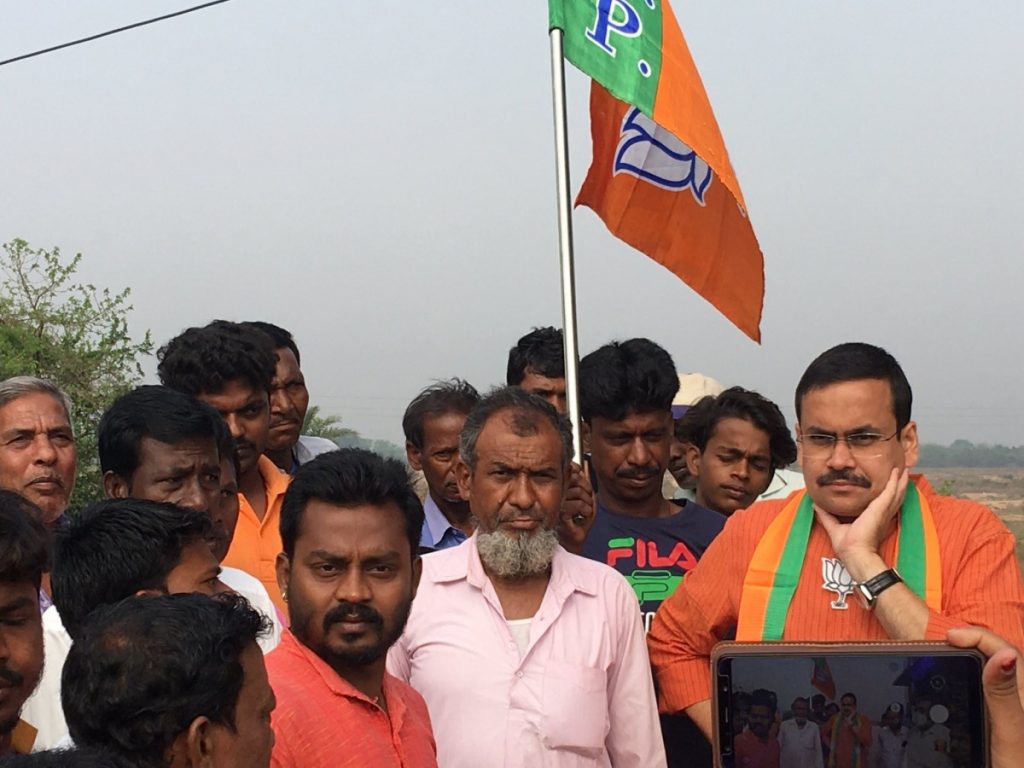
Voters believe Mamata Banerjee has done right by them, but ‘corrupt’ local TMC leaders have cornered all the benefits.
Bolpur (West Bengal): In the middle of a heated debate on the Left Front’s prospects and political posturing in the ongoing West Bengal assembly polls, Ribhu Halder (name changed) moved to a different tangent. “Our biggest failure is that we could not defend our workers in villages. We could not reach them when they needed us the most. The BJP [Bharatiya Janata Party] has filled that vacuum. If the TMC [Trinamool Congress] throws a bomb at our workers’ houses, the BJP has also begun to give it back in the same language. We, on the other hand, are busy with only big talk about ganatantra (democracy),” he interrupted the conversation emphatically to draw everyone’s attention.
Halder, currently a student at the Visva Bharati University, Shantiniketan, has been a worker of the Communist Party of India (Marxist) since his school days. In the upcoming elections, he has relentlessly been campaigning for ally Revolutionary Socialist Party’s candidate from the Bolpur assembly seat, senior leader Tapan Hore. He doesn’t think Hore has a chance in the largely bipolar elections between TMC and BJP, but seemed ideologically committed enough to remain with the communist party, although he admitted that “most of his comrades in Birbhum have shifted to the BJP”.
The underlying assumption in Halder’s argument is that the TMC’s massive influence, which is allegedly exercised through a violent domination of oppositional voices in villages and towns of Birbhum, could only be countered through similar means.
He asserted that in Birbhum, violence is an accepted way of exerting political influence. “A ruling party beats up opposition leaders to take control, the opposition resists that state-led violence to establish itself as a contender,” he said, adding that the BJP has cemented itself as a force against the overpowering TMC.
Political violence is not new in West Bengal. Social scientists have written about how the CPI(M)-led Left Front government during its 34-year rule normalised a culture of violence to counter dissenting voices. A bottom-up “party-society” model – a concept developed by eminent political scientist Dwaipayan Bhattacharya – helped create an all-controlling, and repressive, state model in which the ruling party mediated almost every social and economic activity in rural Bengal.
The TMC inherited a similar model, but with a crucial difference. The Left Front government exercised its influence through a well-oiled organisational machinery, and managed to contain dissent to a large extent by redistributing the largesse. The TMC, on the other hand, was more or less steered by a loose unit, in which individual leaders, often driven by self-interest, got to exercise complete control over party affairs in their areas of influence.
Party-society boomeranging on TMC?
Birbhum, where TMC’s district president Anubrata Mondol has exercised domineering control over the last 10 years, is an archetypal example of how the TMC-run “party-society” is on the verge of collapse.
Across the district of Birbhum, also one of the poorest regions of the state, the BJP’s state-wide electoral projection of the TMC government as a repressive and corrupt regime played out at the highest decibel. Scores of people The Wire met in Bolpur, Labhpur, Nanoor, Dubrajpur, Siuri and Sainthia constituencies unhesitatingly talked about allegedly corrupt lower-level TMC leadership, and explained why they wanted a “poriborton” or change. The same people also unhesitatingly praised the TMC chief minister, Mamata Banerjee, for her welfare efforts in the same breath.
At Mohanpur village in Nanoor constituency, a group of women voters protested loudly against the TMC’s local leaders when one of the party’s village-level leaders attempted to interrupt them.
“Didi (Banerjee) is sending all the money but the thieves in her party do not allow it to reach us. Look around us. There are no roads in the village, no drinking water facility. There is only dadagiri (strong-arm culture),” said an elderly woman, as others around her concurred. The lone TMC supporter, also the party’s booth-level activist, kept repeating to us that “onek kaaj hoyeche (a lot of work has been done here)” but his voice was soon drowned out by the group of women who disagreed. He had no option but to leave.
“In every site of construction that you see around, the TMC people force the builder to share a cut. My father is one of the managers of a new building. I know,” a college-going student Tapan told The Wire at Sainthia town.
His friend Mintoo then intervened, “To say that no unnayan (development) has happened over the last 10 years will be wrong. But the TMC leaders overdid themselves in putting pressure on people. Everyone is scared of them.”
“Moreover, look at me. I graduated in 2015 but couldn’t find a job here. Now I work in a private firm in Bankura. There has hardly been any government recruitment in Mamata Banerjee’s time. We need more industries, more jobs,” said another friend who was first hesitating to speak.
A large section of people in various constituencies of Birbhum often looked around before they started to speak, and only expressed themselves after ensuring this correspondent’s identity.
“Khayiyeche aloo bhaat, aar bolche Mangsho bhaat (They have fed us potato and rice but are claiming that they have given us mutton and rice,” a jhalmuri hawker in Bolpur said upon being asked repeatedly, and then nodding in the positive to a question on whether he wants a change. He recollected how he was charged Rs 120 a week until recently by TMC workers to set up shop at the Bolpur market.
In Illam Bazaar of Bolpur constituency, a car mechanic Md Zaid said the ‘communal’ BJP is not an alternative for him but blamed the TMC’s district leadership for fomenting the BJP’s growth in the region.
“Jodi pahar dekhte chaan, Darjeeling jaan, jodi unnayan dekhte chaan, tahole TMC’er neta der baari jaan (If you want to see mountains, go to Darjeeling, if you want to see development, then go to the homes of TMC leaders),” he said with a grin, again looking around to ensure that no TMC leaders are present.
A CPI(M) worker’s priority and high hopes
In Labhpur, a devoted CPI(M) supporter Debatosh Ray proudly claims, “Ebar Jai Shri Ram (This time, it will be Jai Shri Ram for us). There are many such silent votes.”
“We are going to get back our strength,” he said, reminiscing over the good old days when Birbhum was one of the biggest bastions of the Left.
When asked how as a communist, he could support the saffron party, he said, “It is important to oust the TMC first. Everyone in my village has had to face the wrath of the TMC leaders after 2011. If BJP can defeat them, then we are for it.”
He quickly added, “In 2026, however, we will oppose the BJP. Our campaign will be against the proposed NRC. The idea is absurd. Suman Kalyanpur (a renowned singer) was born in Dhaka. So should we have sent her back to Bangladesh?”
Another group comprising both Hindus and Muslims, with whom The Wire caught up in Nanoor, said that they prefer “poriborton” but would wait to take a final decision after “Sheikh Kajol” decides who he was supporting.
Kajol, a local strongman, is one of the few leaders who has managed to retain his popularity precisely because he is not associated with the ruling TMC, and is perceived as a wall between TMC leaders and commoners.
More importantly, he is seen as an autonomous leader who switches loyalties according to the political context of the times. In the 2016 elections, CPI(M)’s victory in Nanoor is credited to Kajol, even as the TMC swept the district. Recently, the chief minister reached out to him and appointed him to a minor party post to get his support, but according to most people in Nanoor, he hasn’t made his decision yet.
Most of the erstwhile supporters of the Left harboured a ruse against TMC leaders for not even allowing Left leaders to file their nominations during the 2018 panchayat polls. Birbhum, especially, was marked by multiple incidents in which opposition leaders were violently prevented from filing their nominations at the time. Nearly 34% of the panchayat seats across Bengal were won by the TMC without any contest. In this context, a majority of Left supporters have turned towards the BJP in the assembly polls.
Sense of fear
An all-pervasive sense of fear is quite palpable in Birbhum. People do not open up about their political preferences, and even when they do, they do so with a tinge of hesitation. At many instances across constituencies of Birbhum, TMC leaders interrupted the conversations The Wire attempted to have with regular voters.
“Yes, brother, ask me what you want to ask. They do not know much,” two local TMC leaders barged into a discussion, as they alighted from their sedans at a village near Labhpur.
In other instances, if people noticed a local TMC leader around, they would direct this correspondent to him. “He will know better, ask him,” said a person at Ghurisa village in Bolpur constituency.
Similarly, at Islampur in Dubrajpur assembly seat, a samosa seller and others who had gathered at his shop refused to speak as a TMC leader was in the adjacent tea and cigarette store.
The district has been marked by innumerable incidents of violence since 2011, when the TMC came to power. The TMC-led violence has been the worst in the Nanoor constituency where the Left Front has had a strong presence. In fact, even as these assembly polls are underway, the Election Commission of India confiscated 35 active bombs from Nanoor.
BJP gains, as the most poor want a change
The heavy hand with which the TMC has governed the district reflects in the political mood. More so, among large sections of Scheduled Castes, Scheduled Tribes and poor Muslims, and the most marginalised sections of the population.
Explained a Muslim vendor Rafiq in Ghurisa, “People are fed up with TMC’s dadagiri. Most SCs and STs, who are the poorest here and have been the worst victims of TMC’s dadagiri and durniti (corruption), have all turned towards BJP. Even many Muslims will vote BJP this time.”
Asked if BJP’s communal image isn’t a problem, he said, “It is. But it is a new party. Many are thinking that they could give the party a chance. Moreover, a regime change could be a huge relief for a lot of people.”
Ashok Bagdhi, a Dalit in Surul village, said, “There is no harm in trying a new party. BJP has promised it will build roads in our corner of the village.”
Said his wife who was by Dalui’s side, “TMC’s lower-level leaders are very corrupt and favour only Muslims. We are poorer than Muslims. We want a government which thinks of all communities, not just one group.”
Similarly, in at least two localities with an Adivasi majority, people indicated that they are likely to vote BJP this time around. “Nothing that Didi sends reaches us. There has been a drinking water problem for so many days. Nothing was done. A new party can work towards getting us drinking water,” said Haru in Majuria village of Dubrajpur constituency.
Similarly, Ratan Majhi in lower Pahareswar, Dubrajapur, spoke about how BJP has promised to build them homes. “Didi had also sent us money to build homes. But it was impossible for us to make one after sharing a substantial sum of that amount with the local TMC leaders.”
When asked about their voting preferences, most indicated that a possible relief from TMC’s perceived repression will play a greater role than their appreciation for Mamata Banerjee, who was widely acknowledged as the one who extended multiple welfare benefits to them.
Precisely because of such widespread sentiments, the BJP, unlike in districts like North 24 Parganas and other regions bordering Bangladesh, hasn’t run a high-pitched communal campaign in Birbhum. It has focused on its promises and has been tactically campaigning against TMC’s repression and corruption without putting the chief minister in the direct line of attack.
BJP’s most high-profile candidate in the district Anirban Ganguly, director of the BJP’s think-tank Dr. Syama Prasad Mookerjee Research Foundation (SPMRF), makes it a point to take along Muslim, Dalit and Adivasi supporters in his daily campaign. The BJP’s daily campaign in the areas dominated by the most poor is that the Centre has ensured a heavy deployment of “kendriya vahini (central forces)” to ensure free and fair voting, and that there was no need to be scared of the TMC leaders.
At a time when the Sitalkuchi incident in Cooch Behar, in which four people were shot down by CISF personnel in a polling booth, such a saffron campaign may only enthuse those who want a change, and demoralise those political workers who are embedded within the ruling party.
Even as the BJP is running a spirited campaign, its foundations have already been established by the Rashtriya Swayamsevak Sangh. The RSS has been particularly active in the Adivasi-dominated areas of Birbhum since 2011, and has received the support of local TMC leaders. “RSS has always supported us against the Left. But now that BJP is a force here, it has switched loyalties,” a TMC leader in Siuri told The Wire in an off-the-record conversation. Across Adivasi and Dalit villages, the RSS has advanced the cult of Hanuman and built many small temples over the last few years.
Against such a political backdrop, Birbhum’s demography gives a decisive edge to the BJP. Of its 62% Hindus, around 30% comprise Scheduled Castes and 22% form Scheduled Tribes. The 37% Muslim population, a majority of which is supporting TMC, is mostly concentrated in only three constituencies – Hasan, Nalhati and Murarai – of the 11 assembly seats in Birbhum.
TMC, on the other hand, has only one factor going in its favour – that of its organisational strength and muscle power. BJP’s tactical campaigning against the Anubrata Mondol-led local leadership has sought to turn that very advantage for the ruling party into its biggest disadvantage.

